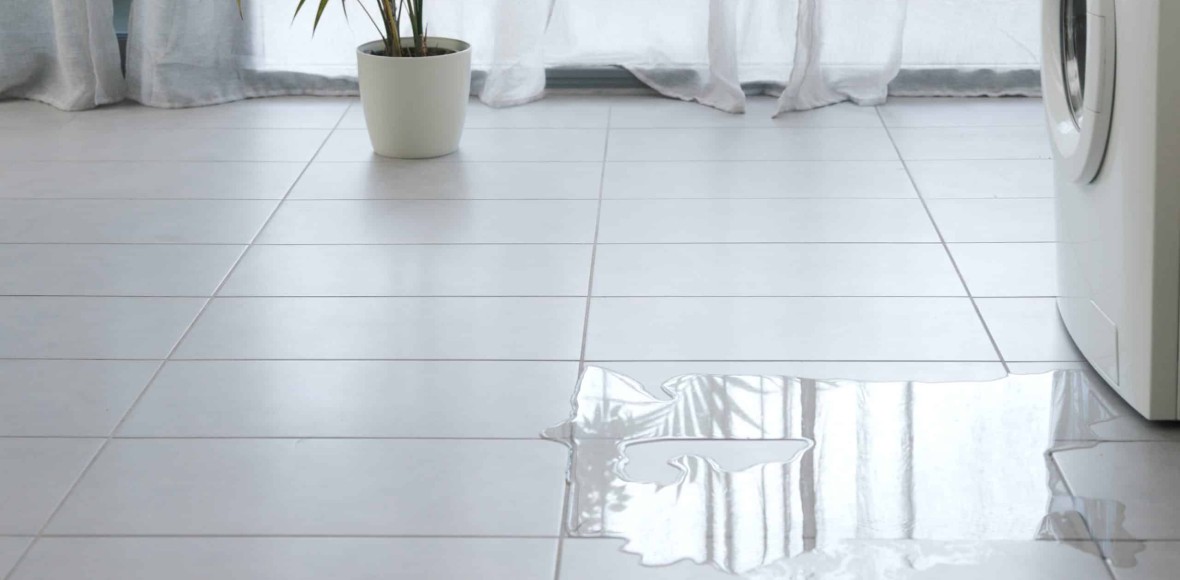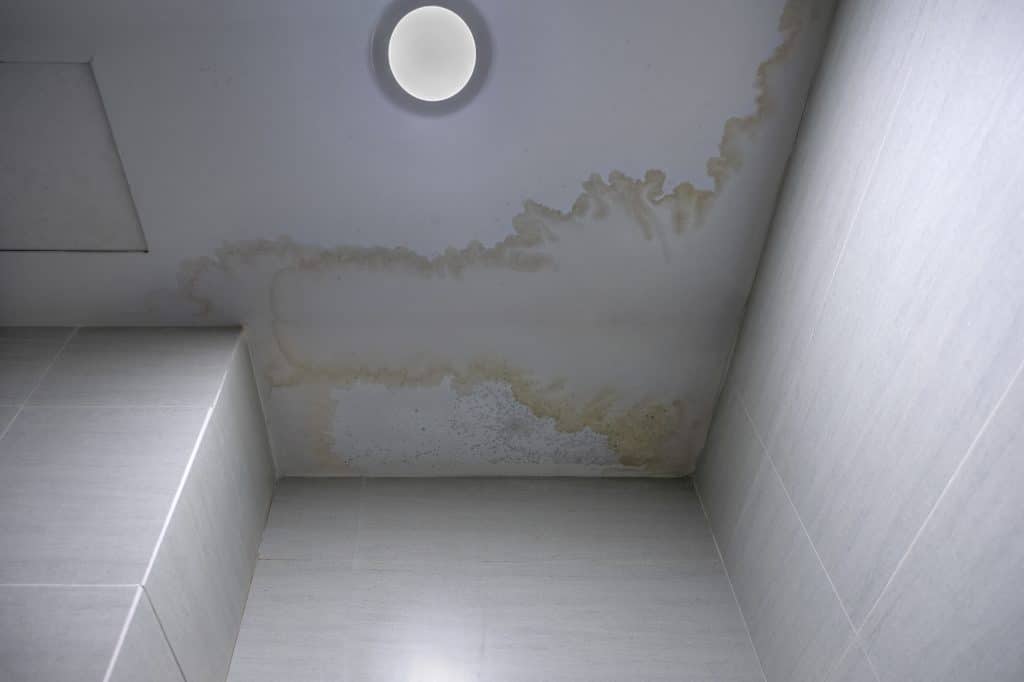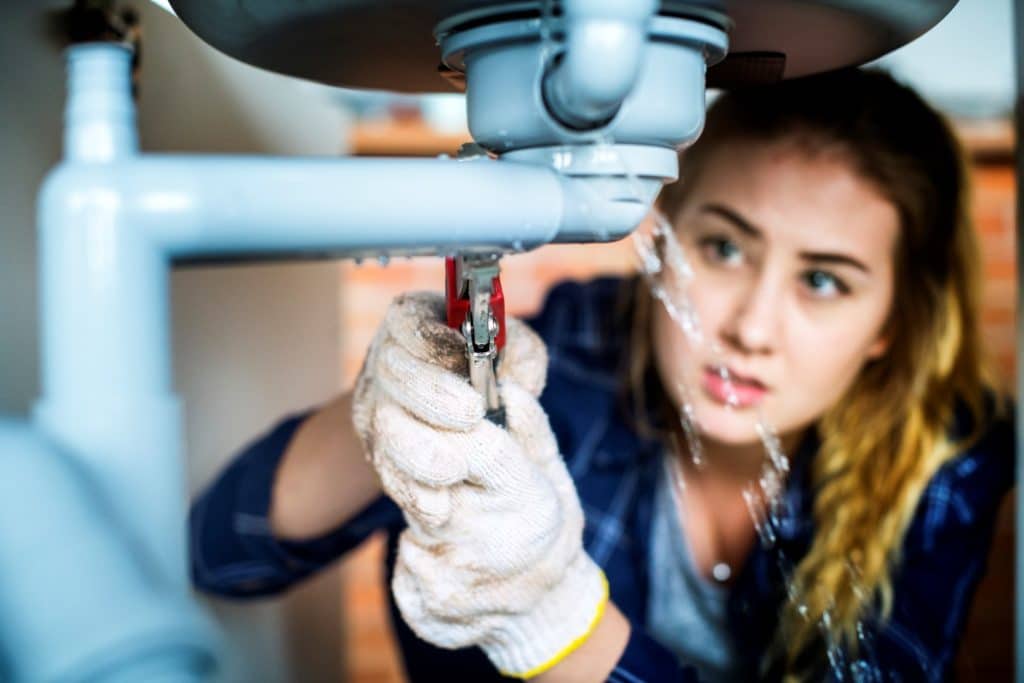
Here’s how to find a water leak (and what to do about it to prevent damage).
Discovering a leak in your home can be a nightmare—think thousands of dollars in repairs, plus downtime. Water damage is a significant issue for property owners.
So, what should you do if you suspect a water leak on your property?
This article will show you how to find a water leak quickly and what to do when you find one.
Have you noticed an unexpected increase in your water bill? It could be the result of a water leak. Unusual increases in water consumption are one of the telltale signs that you have a leak somewhere on your property, either inside the house or underground in the yard.
In addition to examining your water bill for abnormal surges in usage, keep track of your water consumption. The average family of four uses about 350 gallons per day. If your water consumption is a lot more, you may have a water leak on your hands.
The key to minimizing the damage is early detection. Leaks can cause a lot of damage to your home or business, whether it’s a small drip from a faulty faucet or a large leak from a burst pipe.
Unfortunately, some leaks go undetected for a long time. Determining a leak based on a water meter reading or using a moisture meter with the assistance of a professional simplifies the process of determining if there is a problem.

If you suspect one, you should search for the water leak as soon as possible. Find the source by inspecting all of your home’s plumbing for signs of leaks. Look for other signs if you can’t find any leaks from exposed pipes.
Is there standing water in the garage? Or perhaps a strange puddle of water outside? Examine water fixtures, appliances, and your roof for signs of water damage. Most water leaks are relatively simple to locate if you know what to look for.
To confirm that you have a water leak, read your water meter and stop using any water for at least two hours. Then, recheck your water meter. If there’s been a change in your water meter, you know you have a water leak.
If you think your leak may be coming from the floor, check for any warping or softness in your floorboards. If you have tiles in your home, are any of them loose, cracked, or coming up? This may also be an indication of a water leak.
Few homeowners ever think to look under their sink periodically, but even a relatively small leak can cause a lot of damage if left for long enough.
If necessary, move the cleaning supplies and toiletries out of the way to examine the state of the cabinets underneath.
How do you find a water leak if it could be in the walls or ceiling? Look for signs of water damage, such as wet spots on the walls or ceilings, water stains, or mold. If you notice discoloration or water stains on the walls, this could indicate a water leak behind the drywall.
Listen for any unusual sounds, such as dripping or gurgling that could indicate a water leak. Buckling wallpaper or bubbling or flaking paint are more signs that your leak is coming from the walls.
Examine your yard for wet spots or stray puddles outside your home or business. Check your sprinklers and irrigation system to ensure that they are not the source of the leak. You can also check your roof to see if you need emergency roof tarping.
Most professionals will use a moisture detector to determine the location and severity of a leak.

Once you find a leak, you must act quickly to prevent further damage. Turn off the water at the main shut-off valve to stop the flow of water.
Some water leaks are simple DIY jobs, but others can be more serious. If the leak is minor, turn off the water to the affected area and repair the leak. Keep monitoring the area closely for any further signs of leaking.
If the leak is significant, turn off the water to the entire property and call a professional.
Once the leak has been fixed, it’s important to dry the area thoroughly. Water damage is a serious business, and can lead to other major issues—such as termites and mold—that can wreak further havoc.
Major disaster cleanup is not a job that most homeowners are capable of doing on their own. Contact a water damage restoration company to make sure the job is done properly.
Water leaks are common, but you should not take them lightly. You can minimize damage and save yourself a lot of headaches by being proactive and knowing what to do in the event of a leak.
If you have emergency questions about water leaks or need help finding a water leak, feel free to contact the professionals at Axel Works Emergency Restoration. We’re always happy to address your emergency leaks 24/7 and 365 days a year.
Leave a Reply